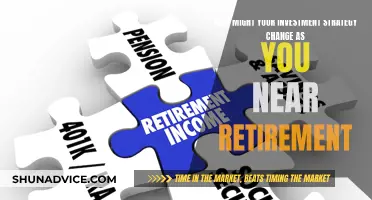
Paying off your mortgage or investing your money is a common dilemma. It's important to consider your financial situation, goals, and comfort with risk when deciding which option is best for you.
Paying off your mortgage early can save you thousands of dollars in interest and give you peace of mind. It can also increase your financial freedom by freeing up money for other expenses or investments. However, paying off your mortgage early may mean losing out on potential investment returns and tax deductions.
On the other hand, investing your money may provide a higher rate of return, especially if you invest in the stock market. Investing in a retirement account can also provide tax advantages and potential employer matches. However, investing carries more risk and may not provide the same sense of security as owning your home outright.
Ultimately, the decision to pay off your mortgage or invest depends on your individual circumstances and financial goals. It may be possible to do both by making small extra payments on your mortgage while also investing. Consulting a financial advisor can help you make an informed decision that aligns with your goals and risk tolerance.
| Characteristics | Values |
|---|---|
| Interest rates | If you can earn a higher annual return on an investment than you’re paying on your mortgage, it might make sense to invest instead. |
| Tax deductions | Paying off your mortgage early means losing a tax deduction on mortgage interest payments. |
| Risk | Investing in the stock market is riskier than paying off your mortgage but has the potential for higher returns. |
| Retirement | It's important to fund your retirement accounts before paying off your mortgage. |
| Emergency fund | It's recommended to have an emergency fund containing 3-6 months' worth of living expenses before paying off your mortgage. |
| Debt repayment | It's typically smarter to pay down your mortgage as much as possible at the beginning of the loan to avoid paying more interest over time. |
| Peace of mind | Paying off your mortgage can give you peace of mind and free up money for other things, including retirement. |
| Equity | Paying off your mortgage means you own 100% of the equity in your home, which you can borrow against or sell without using proceeds to pay off your mortgage. |
| Prepayment penalties | Some lenders charge prepayment penalties for satisfying your mortgage early. |
What You'll Learn
- Paying off your mortgage early can save you thousands in interest
- Investing instead of paying off your mortgage may get you a better rate of return
- Paying off your mortgage can give you peace of mind and free up money for other things
- Investing in stocks and similar products carries greater risk and potentially greater rewards than paying off your mortgage
- Paying off your mortgage early may mean skimping on your emergency fund

Paying off your mortgage early can save you thousands in interest
Paying off your mortgage early can save you thousands of dollars in interest over the life of the loan. This is because, in the early years of a mortgage, most of your monthly payments go towards interest, and only a small portion goes towards reducing the principal loan balance. By making extra payments early on, you can reduce the principal on which you're being charged interest, and so you could pay considerably less in interest over the life of the loan.
For example, let's say you have a 30-year fixed $200,000 loan at a 4.38% rate. If you make 13 payments a year instead of 12, you save $27,216 in interest overall. If you kicked in an extra $200 each month, you’d save $6,000 in 10 years, $50,745 in 22 and a half years, and you’d have the mortgage paid off, too.
The benefits of paying off your mortgage early can include:
- Saving thousands of dollars in interest
- Peace of mind and less stress
- Building equity in your home faster
- Gaining access to that equity through a home equity line of credit (HELOC) or cash-out refinance
- Freeing up funds for other investments or personal hobbies
However, there are also some downsides to paying off your mortgage early, including:
- Cutting into savings
- Missing out on tax deductions for mortgage interest payments
- Potentially incurring prepayment penalties
- Missing out on potential higher returns from other investments
Invest in Us: The Human Advantage
You may want to see also

Investing instead of paying off your mortgage may get you a better rate of return
Higher Returns
The stock market has historically delivered higher returns than the interest saved by paying off a mortgage early. While past performance doesn't guarantee future results, the US stock market has delivered average annual returns of around 10% over the last century. This means that investing in stocks could potentially earn you more money than paying off your mortgage early, especially if you have a low mortgage rate.
Liquidity
Investing in stocks, bonds, and other marketable securities provides greater liquidity compared to paying off your mortgage early. If you need cash quickly, it's much easier to sell stocks or bonds than to sell your home or take out a loan against its value. This liquidity can be crucial in the event of financial emergencies or unexpected expenses.
Employer Match
If you choose to invest in a retirement account, your employer may offer to match your contributions. This effectively gives you free money on top of the potential investment gains. By investing pre-tax dollars in a retirement account, you may also be able to afford larger contributions.
Risk Tolerance and Life Stage
Your risk tolerance and life stage play a crucial role in deciding whether to invest or pay off your mortgage early. Younger investors with a higher risk tolerance and a longer time horizon until retirement may prefer investing in the stock market, as historical trends suggest higher potential returns over the long term. On the other hand, older investors approaching retirement may opt to reduce their risk exposure and prioritize paying off their mortgage to lower their fixed expenses.
Tax Implications
The tax advantages of carrying mortgage debt have decreased in recent years due to changes in standard deductions and the deductibility of interest for new mortgages. In contrast, investing in a tax-sheltered vehicle, such as a retirement account, can provide tax incentives and boost your overall returns. Consult a tax advisor to understand the specific tax implications for your situation.
Rwanda's Education: Invest in the Future
You may want to see also

Paying off your mortgage can give you peace of mind and free up money for other things
Paying off your mortgage early can save you thousands of dollars in interest over the life of the loan. The interest you save by paying off your mortgage early could be tens of thousands of dollars. The earlier you pay off your mortgage, the more you save in interest. If you pay off your mortgage early, you can also build equity faster. Equity is the difference between what you owe on your mortgage and what your home is worth. The more equity you have, the more options you have financially. For example, you could borrow against the equity or sell your home without using any of the proceeds to pay off your mortgage.
Paying off your mortgage can also improve your liquidity and savings. Without a monthly mortgage payment, you'll have more money at your disposal to put toward other financial goals, such as building an emergency fund, boosting your savings, or funding a 529 plan for your children. You can also use the money you save to increase and diversify your investments.
However, it's important to consider the potential disadvantages of paying off your mortgage early. If you're putting more money toward your mortgage, you'll have less money available for other things, such as building an emergency fund or saving for retirement. Additionally, paying off your mortgage early means that you won't be able to take advantage of the mortgage interest tax deduction, which can increase your tax refund and lower your taxable income. Finally, paying off your mortgage early may mean that you're neglecting other important investments, such as your retirement fund, which could provide a greater return on investment.
Diversification: Investors Seek Safer Havens
You may want to see also

Investing in stocks and similar products carries greater risk and potentially greater rewards than paying off your mortgage
The decision to pay off your mortgage or invest depends on your risk tolerance and long-term goals. While paying off your mortgage early frees up monthly cash flow and saves you money on interest, investing in stocks can potentially yield higher returns.
Interest Savings vs. Investment Returns
Paying off your mortgage early can result in significant interest savings. For example, if you have a $400,000 30-year mortgage at a 6% interest rate and pay off the remaining balance in year 10, you could save nearly $241,000 in interest. However, investing in stocks that yield an average annual return of around 8% could result in even higher gains over time.
Liquidity and Emergency Funds
Paying off your mortgage early reduces your liquidity, as accessing that equity in an emergency would require selling your house or taking out a home equity loan. In contrast, investing in liquid assets like stocks provides easier access to funds in case of unexpected expenses.
Tax Implications
Mortgage interest is tax-deductible if you itemize deductions on your income tax return. Paying off your mortgage early could result in losing this tax benefit. However, if you are subject to higher tax brackets, the loss of this deduction may push you into an even higher bracket. Consult a tax advisor to understand the tax implications for your specific situation.
Retirement Planning
It is generally recommended to prioritize funding your retirement accounts before paying off your mortgage early. The power of compound interest means that investing for retirement at a younger age can lead to more substantial gains over time. As you approach retirement, you may want to invest more conservatively, and paying off your mortgage may become a more attractive option.
Risk Tolerance
Investing in stocks carries a higher risk than paying off your mortgage, which is typically considered "good debt" due to its relatively low-interest rates. When deciding between the two, consider your risk tolerance and overall financial goals. If you are uncomfortable with risk, paying off your mortgage can provide peace of mind and reduce your overall debt burden.
In conclusion, while paying off your mortgage early has its benefits, investing in stocks and similar products offers the potential for higher returns. Carefully consider your financial situation, risk tolerance, and long-term goals when making this decision, and remember that seeking advice from a financial advisor can help you make the choice that best aligns with your specific circumstances.
Gamestop Investors: Who's In?
You may want to see also

Paying off your mortgage early may mean skimping on your emergency fund
While paying off your mortgage early can be advantageous, it may not always be the best option. It is important to consider your financial situation and goals, as paying off your mortgage early might mean skimping on your emergency fund. Here are some reasons why you might not want to pay off your mortgage early:
Build an Emergency Fund First
Before paying off your mortgage, ensure you have sufficient cash reserves to cover financial emergencies, such as unexpected income loss or medical bills. It can be challenging to access funds during times of economic distress, so it is essential to have an emergency fund that can cover at least three to six months' worth of living expenses. This will help you avoid racking up credit card charges or taking out loans to cover unexpected costs.
Pay Off High-Interest Debt First
If you have other debts with higher interest rates, such as credit cards or personal loans, it may be more beneficial to focus on paying those off first. Compare the interest rates of your debt accounts with your mortgage interest rate, and aim to pay off any accounts with higher interest rates.
Take Advantage of Tax Deductions
If one of your financial goals is to reduce your tax bill, you may want to hold off on paying off your mortgage early. The IRS allows you to deduct mortgage interest from your taxable income, lowering your tax bill. However, if you pay off your mortgage early, you will lose this benefit.
Maintain Liquidity
Paying off your mortgage early can deplete your liquidity as the extra money you dedicate to your house becomes locked in a non-liquid asset. Maintaining adequate liquid assets, such as emergency savings, stocks, bonds, or a tax-advantaged retirement fund, can provide you with more financial flexibility and options when you need immediate funds.
Prioritize Retirement Savings
If you are not maximising your retirement contributions, it is generally recommended to focus on funding your retirement accounts before paying off your mortgage early. By prioritising retirement savings, you can take advantage of compound interest and ensure you have sufficient funds for retirement.
In conclusion, while paying off your mortgage early can provide peace of mind and free up cash flow, it is important to consider the potential impact on your emergency fund and other financial goals.
Turkey: Invest Now or Later?
You may want to see also
Frequently asked questions
Paying off your mortgage early can save you thousands of dollars in interest over the life of the loan. It can also be liberating to own your own home and not have to make any more monthly payments.
You may be neglecting other important investments, such as your retirement fund, and missing out on greater returns from riskier investments, such as the stock market. You will also lose a potential tax deduction on mortgage interest payments.
Investing in the stock market gives you the potential to earn more money than you would save by paying off your mortgage early. You can also access your money more easily by selling your shares. If you're investing in a retirement account, your employer may be willing to match your contributions.
Investing is riskier than paying off your mortgage. You could lose thousands of dollars in the stock market. Your money is tied to the market, which can be volatile.







